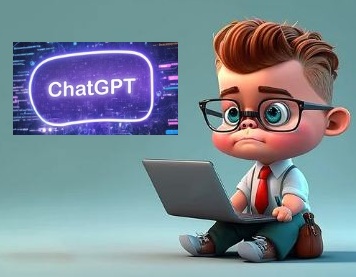ChatGPT can be a valuable tool for students in various educational contexts.

Here are some uses of ChatGPT for students:
- Homework Help: Students can use ChatGPT to get assistance with homework, assignments, and understanding complex topics across different subjects.
- Tutoring: ChatGPT can function as a virtual tutor, providing explanations, answering questions, and offering guidance in various academic subjects.
- Language Learning: For language learners, ChatGPT can assist with translation, pronunciation, and language-related queries, helping to improve language skills.
- Study Support: Students can use ChatGPT to create study materials, flashcards, and summaries, making exam preparation more efficient.
- Research Assistance: ChatGPT can help students find relevant research papers, articles, and academic sources, saving time in the research process.
- Essay and Report Writing: Students can receive guidance and suggestions on essay and report writing, including structure, formatting, and content.
- Math Problem Solving: ChatGPT can assist with math problems, equations, and step-by-step explanations for various mathematical concepts.
- Test Preparation: Students can use ChatGPT to access practice questions, quizzes, and test-taking strategies to prepare for exams and assessments.
- Project Ideas: ChatGPT can provide creative ideas and project topics for assignments and presentations.
- Coding and Programming Help: Students studying computer science or programming can get coding assistance, explanations, and debugging support.
- Time Management and Study Tips: ChatGPT can offer advice on time management, study techniques, and productivity tips to help students excel in their studies.
- Language Practice: For language learners, ChatGPT can engage in language conversation practice and offer real-time corrections and feedback.
- Career Guidance: ChatGPT can provide information on various career paths, educational opportunities, and advice on choosing a major or field of study.
- Access to Educational Resources: Students can use ChatGPT to find educational videos, articles, and online courses to supplement their learning.
- Accessibility Support: ChatGPT can assist students with disabilities by providing information in alternative formats and answering questions about accessibility accommodations.
- Mental Health and Well-being: ChatGPT can offer resources and suggestions for managing stress, anxiety, and maintaining mental well-being.
- Learning Games and Quizzes: Students can use ChatGPT to access educational games, quizzes, and interactive learning activities for an engaging learning experience.
Overall, ChatGPT can provide students with valuable academic support, resources, and guidance, enhancing their learning experiences and helping them achieve their educational goals. However, it should be used alongside traditional learning methods and with critical thinking to ensure accurate and context-appropriate information.
![]()